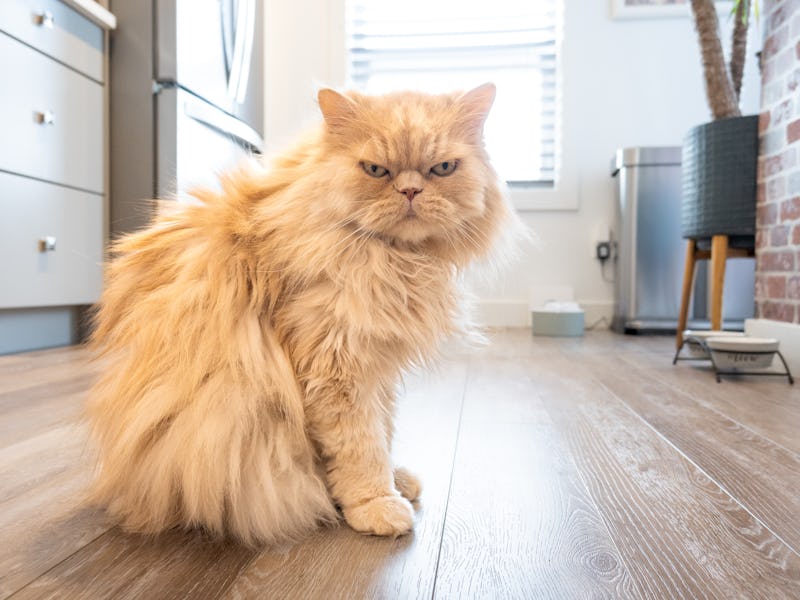Are Cats Petty? No, But They Are Extremely Insecure
When they act out, our kitties aren’t conveying resentment, according to a pet psychologist.

All cat owners have days where their feline acts as petty as a bad roommate. They poop outside the litter box or scratch your precious couch. In human terms, this is spite through and through.
But experts say we’re anthropomorphizing our fur babies when we call them vindictive. While their actions may frustrate us, it turns out our kitties aren’t conveying resentment. In fact, they’re likely displaying a different sentiment altogether: Insecurity.
Kristyn Vitale, a professor of animal health and behavior at Unity Environmental University in Maine, tells Inverse there’s usually a crucial common factor across these undesirable behaviors.
If your cat got your attention, that might be what they were angling for. “The cat may not be consciously giving the message, but they are giving a message,” she says. That message just isn’t, “I’m mad at you.”
In other words, your cat isn’t being petty — they just feel lonely, anxious, or insecure. This is their way of expressing it, and they’re not doing it on purpose.
Make sure your cat isn’t actually sick — or stressed out
It’s possible these “petty” acts are expressions of anxiety and insecurity in response to change. Irregular behavior, especially when it comes to physiological processes, could be a symptom your cat is sick. Pay attention to whether your cat repeats this behavior. Peeing outside the litter box once may be an aberration, but doing so repeatedly warrants a trip to the vet. Likewise, vomiting once is usually of no concern, but lots of puke is. Other abnormalities, like a change in mood and eating habits, are also telling of illness.
If you’re sure it’s not a health problem, assess whether your cat might be experiencing some stress, perhaps because of changes to the environment. This could mean a new person has come to visit, construction inside or just outside, or a new animal hanging around outside your window.
“When cats have anxiety, we will see them display some of these inappropriate behaviors just because it's their way of dealing with it,” Vitale says. “If their owner has left for a substantial amount of time, they might have some social anxiety from that separation that causes them to throw up.”
Focus on little changes and positive reinforcement
Once you’ve ruled out a medical problem, Vitale suggests that you “look at the distribution of resources.” For example, where is their litter box placed? If it’s somewhere isolated and out of the way, they might be peeing outside because they’d rather mark their scent in a more socially important locale, like the living room or bedroom. Peeing is a natural behavior to mark territory, and they’re communicating their desire to mark someplace more central. You may want to move their litter box or add a scratching post they can scent to that room.
Vitale advises against negative reinforcement to discourage certain behaviors. Punishment may actually reinforce an association “The animal can connect the person delivering the consequence with the unpleasant experience itself,” Vitale says, which is “potentially damaging to the relationship.” This is especially true if these behaviors are a stress response: “Using items to try and alter these behaviors may just make the cat more stressed.”
She does, however, approve of positive reinforcement. Rewarding cats for scratching the tower instead of the couch or peeing in the litter box sends a much stronger message than spraying them with water.
“In all, the key is not to stop the behavior but to redirect the behavior to an appropriate location,” Vitale says.
This article was originally published on